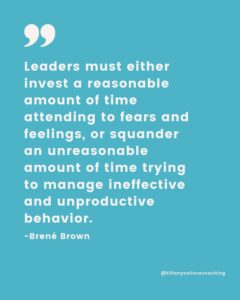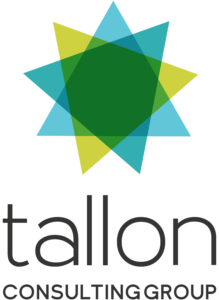STORYTIME
Neil was a bully in the workplace. He yelled at his people and was verbally abusive when he was angry and frustrated. He told them how they should do things, and because he had positional power, everyone did what he said. His leadership team was afraid of him and he didn’t even know it. And yet, when things were going well, he could be a nice guy who was kind and generous. He drove his staff crazy with all kinds of mixed signals. However, his biggest problem was that he was out of touch with his company because his controlling nature caused others to disconnect with him.
Norm projected intellectual arrogance to his people. He was a brilliant engineer who eventually became the CEO at his company because he knew more than everyone else. However, once in that position, he would spend his days in his office with the door closed to any intruder, which is exactly how he viewed his staff: as intruders. He had no idea that connecting with people, creating relationships, motivating, inspiring and creating a vision for the company was also a critical skill set of his job. In fact, it was perhaps the most important part of his job.
Steve micromanaged every situation he was in – it’s how he led. He was convinced he knew the “right” or “perfect” way of doing things. After all, no one worked harder than he did, he had more experience than them, and frankly, he had been very successful in his career. However, his people felt criticized, talked down to and they were often at the mercy of his very harsh, righteous and condescending tone of voice. Furthermore, Steve was not getting feedback about his behavior because he would meet feedback with more criticism when anyone had the courage to approach him. In turn, Steve created his own false reality without knowing it.
SOUND FAMILIAR?
Each of these brief stories are true, and each of these individuals were suffering from a blind spot unique to them. You might say they were “unconsciously incompetent”. In other words, they didn’t know what they didn’t know about themselves.
If you think back on your career, you might have known leaders just like Neil, Norm or Steve. You might currently know leaders like Neil, Norm or Steve. Hell, you yourself might be Neil, Norm or Steve. You might have wished, or wish, that there was a way to positively influence them.
THAT’S WHERE WE COME IN
It’s at about this point where Tallon Consulting Group comes into the picture. We help bring to light the unconscious derailers standing in the way of personal and professional growth within organizations, at all levels. We also help people realize their innate gifts that are often being underutilized in the workplace.
By using a combination of Enneagram training, one-on-one coaching, and the teachings of Brenè Brown, the client is given the gift of self-awareness, along with the tools to amend their path. A personalized coaching roadmap is created by gathering information about how others experience the client personally and professionally (in the utmost confidence). In doing the work that follows, that is where the magic happens.
WHAT IS THE ENNEAGRAM?
While we use a multi-faceted approach, the Enneagram alone has proven to be an immensely useful tool in the workplace and in personal development. According to Forbes magazine, “By understanding your type, you can let go of habitual patterns and open up to your own inherent gifts. As you become more aware of your type, you can move up the levels of growth and ultimately lead from your best self. You understand your reactions, preferences, and how you show up for your team.”
What a tremendous gift that is!
In short, the Enneagram consists of 9 unique types that inform our motivation behind why we do what we do both in a healthy state and in a state of stress. Therefore, allowing us to know more about our strengths and challenges to foster growth.

THE BOTTOM LINE
The sooner you can provide this gift to yourself and others in the organization, the better. Brenè Brown says it best in her book Dare to Lead:
“Leaders must either invest a reasonable amount of time attending to fears and feelings, or squander an unreasonable amount of time trying to manage ineffective and unproductive behavior.”
With time being money, you can’t afford to NOT make this investment in yourself and your team.
As for Neil, Norm and Steve? Each of these stories has a happy ending. Neil is no longer a bully and is the CEO of a successful cyber security company. Norm is still a brilliant engineer, however now he is more connected with his team and can share his gifts with them in a way that benefits the group and creates a vision for the company. And, Steve no longer micromanages and instead leads from a place of integrity and servant leadership.
Get started on getting to know yourself and your team today!
Sources: What Your Enneagram Type Says About Your Leadership Style by Catherine Hayes, Dare to Lead by Brenè Brown



